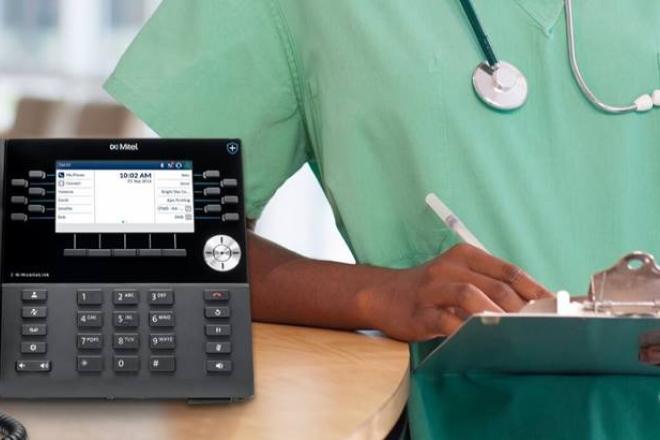The COVID-19 pandemic caused us all to become more aware of cleanliness, hygiene, and what we're touching. Although we wash our hands more regularly upon arriving at the office or back home, our phones are one surface that most of us still ignore. These devices are in constant contact with our hands and faces and can be hotbeds for bacteria.
We investigated how much bacteria can be found on our phones and, most importantly, produced a step-by-step guide on how to clean and disinfect your phone.
How Much Bacteria is on Your Phone?
Left unsanitized, a desk phone can become a severe health risk, harboring germs and providing a breeding ground for hazardous microorganisms and disease.
Studies have found that 60% of illness absences from work are caused by unsanitized office equipment harboring harmful E. coli or staphylococcus bacteria, meaning there is a business and a health cost associated with not maintaining a clean workstation. The same studies also tested desk phones for dangerous pathogens, finding over 25,000 germs per square inch on the devices that most of us use at work multiple times a day.
This is hardly surprising. With all the surfaces we touch at work, home, and on our commute between the two, it's no wonder our office equipment is a hotbed for bacteria.
However, despite all this, only some of us regularly clean our phones. While some office environments provide cleaning services on a daily or weekly basis, it's up to all of us individually to ensure we're doing everything possible to prevent the transmission of harmful bacteria. We all need to take more time to clean our phones regularly, and here's how.
How to Clean Your Phone
There are multiple options when it comes to cleaning your phone, so here are a few of the top methods for disinfecting your desk or smartphone, as well as some other pointers to consider:
1. Use Alcohol Wipes
The quickest and simplest option for sanitizing your phone is 70% isopropyl alcohol wipes. These alcohol wipes are available online, in supermarkets, or from phone and computer stores. Also known as rubbing alcohol, isopropyl alcohol is an effective antiseptic and disinfectant regularly used in hand sanitizer. Using antibacterial phone wipes coated or soaked in this disinfectant is an easy and efficient way to clean your phone. Turn off your phone, remove any cables, and give all the surfaces of your device a gentle but thorough wipe regularly to remove germs.
2. Use Alcohol Spray and a Cloth
Alternatively, you can also use an antibacterial spray and a lint-free cloth. Either lightly spray your phone directly (don't soak it) and wipe it gently or spray the antibacterial solution onto the fabric before wiping your device.
3. Mix Soap and Water
For an even more readily accessible solution, a mixture of simple hand soap and water will effectively disinfect your phone. We would advise mixing hand soap with water and applying this solution lightly with a lint-free cloth. Although this approach doesn't remove as much bacteria as alcohol wipes, it still significantly reduces the amount of potentially harmful microorganisms on your phone.
4. Clean Ports and Speakers
When cleaning our phones, we often negate all those crevices and holes, whether the speakers on the handset or the various cable ports. It's important not to get water in these interior sections, as most phones are not designed to withstand this fully; instead, use a cotton swab or wooden toothpick to remove any dust or dirt carefully and the bacteria that comes with it.
5. Avoid Bleach, Chemicals, and Abrasive Wipes
Most manufacturers advise against using bleach, chemicals, and abrasive wipes when cleaning your phone. While these may be effective at killing bacteria, they can damage your phone's screen or casing.
How to Ensure Your Phone Stays Germ-free
Now that you know how to clean your desk phone, how can you ensure it remains germ-free? Setting reminders in your work calendar to clean regularly is a great way to make sure you remember to sanitize these potential bacteria hotspots.
Ensure your phone remains disinfected by regularly washing your hands, especially between touching other surfaces and your device.
Antimicrobial Phone Solutions
Another solution is to invest in antimicrobial-treated IP desk phones. Mitel’s 6920t and 6930t IP Phones are treated with a silver-based antimicrobial compound from BioCote®, which inhibits the growth of certain bacteria on the phone’s plastic surfaces.
Perfect for use in healthcare, hospitality, sports, education, retail environments, and beyond, the phone's antimicrobial treatment is permanent and protects against microbe growth for the product's lifetime. Other design features include removing crevices, smoothening the surface, and minimizing mic holes to give microorganisms fewer places to gather and grow.
